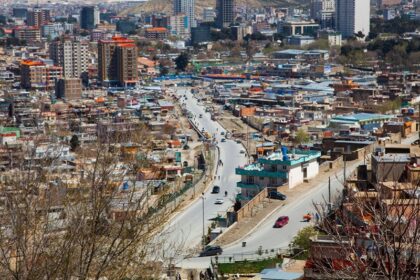RASC News Agency: Local sources have confirmed that fiber-optic and Wi-Fi internet services were abruptly shut down on Wednesday morning, September 17, across the northern provinces of Kunduz, Takhar, Badakhshan, and Baghlan. Residents and telecom employees reported that Taliban fighters stormed the offices of internet providers, confiscating vital equipment and halting all services.
Officials from the Taliban-appointed governor’s office in Kunduz openly admitted that the blackout was carried out under direct orders from the group’s supreme leader, allegedly as part of a campaign to “prevent immorality.” This Orwellian justification highlights the regime’s determination to sever Afghanistan’s fragile connection to the outside world under the guise of enforcing religious purity.
Reports further reveal that within the last 24 hours, the Taliban expanded the blackout to at least ten additional provinces. Currently, residents in Balkh, Kandahar, Helmand, Nangarhar, Herat, Uruzgan, Nimroz, Kunduz, Takhar, Badakhshan, and Baghlan are completely cut off from high-speed internet. In Herat, employees of the provincial communications department and private providers confirmed that a major fiber-optic development project in the 64-Meter Road and Bakarabad areas has been suspended for weeks, paralyzing local connectivity.
Sources within the Taliban’s administrative office in Kabul disclosed that the group’s cabinet formally approved the nationwide shutdown plan during a Wednesday session. According to these insiders, by the end of the week, internet services across the entire country are to be systematically restricted, with telecom companies ordered to gradually reduce and eventually terminate their services.
The impact has been immediate and severe. Residents have expressed deep concern over the restrictions, warning that the blackout will cripple urban communications, disrupt government offices, and halt online services essential to daily life. Banking systems are already reeling: local reports from Balkh, Baghlan, and Herat indicate that the disruption of fiber-optic internet has caused chaos in financial institutions, with customers clashing with staff over failed transactions and significant delays. In many cases, digital transfers have ground to a halt, leaving businesses and ordinary citizens stranded without access to their funds.
Critics argue that the Taliban’s deliberate dismantling of the country’s digital infrastructure is not only an attack on personal freedoms but also an assault on Afghanistan’s already collapsing economy. By isolating millions of citizens from the digital world, the regime is undermining commerce, silencing dissent, and depriving an entire generation of access to education, information, and livelihoods that depend on online connectivity.
For a population already struggling under economic collapse, mass unemployment, and international isolation, the Taliban’s move to shut down the internet represents yet another weaponization of repression cutting off Afghanistanis from each other and from the global community.






